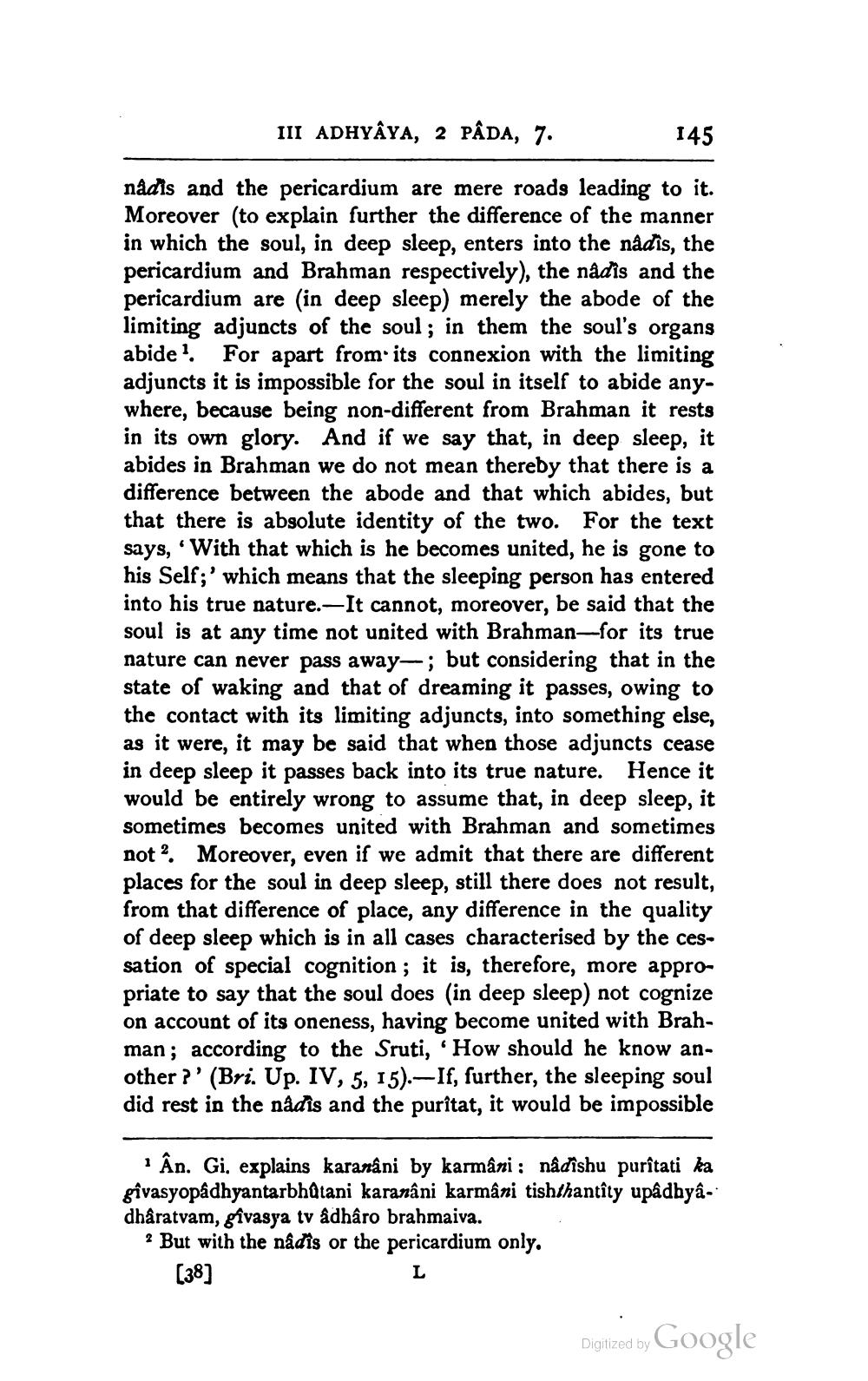________________
III ADHYAYA, 2 PÂDA, 7.
145
nâdis and the pericardium are mere roads leading to it. Moreover (to explain further the difference of the manner in which the soul, in deep sleep, enters into the nâdîs, the pericardium and Brahman respectively), the nâdîs and the pericardium are (in deep sleep) merely the abode of the limiting adjuncts of the soul; in them the soul's organs abide1. For apart from its connexion with the limiting adjuncts it is impossible for the soul in itself to abide anywhere, because being non-different from Brahman it rests in its own glory. And if we say that, in deep sleep, it abides in Brahman we do not mean thereby that there is a difference between the abode and that which abides, but that there is absolute identity of the two. For the text says, 'With that which is he becomes united, he is gone to his Self;' which means that the sleeping person has entered into his true nature.-It cannot, moreover, be said that the soul is at any time not united with Brahman-for its true nature can never pass away-; but considering that in the state of waking and that of dreaming it passes, owing to the contact with its limiting adjuncts, into something else, as it were, it may be said that when those adjuncts cease in deep sleep it passes back into its true nature. Hence it would be entirely wrong to assume that, in deep sleep, it sometimes becomes united with Brahman and sometimes not 2. Moreover, even if we admit that there are different places for the soul in deep sleep, still there does not result, from that difference of place, any difference in the quality of deep sleep which is in all cases characterised by the cessation of special cognition; it is, therefore, more appropriate to say that the soul does (in deep sleep) not cognize on account of its oneness, having become united with Brahman; according to the Sruti, 'How should he know another?' (Bri. Up. IV, 5, 15).—If, further, the sleeping soul did rest in the nâdîs and the puritat, it would be impossible
1
1Ân. Gi. explains karanâni by karmâni: nâdîshu purîtati ka givasyopadhyantarbhûtani karanâni karmâni tishthantîty upâdhyâdhâratvam, gîvasya tv âdhâro brahmaiva.
2 But with the nâdîs or the pericardium only.
[38]
L
Digitized by Google




